Physical Address
304 North Cardinal St.
Dorchester Center, MA 02124
Physical Address
304 North Cardinal St.
Dorchester Center, MA 02124
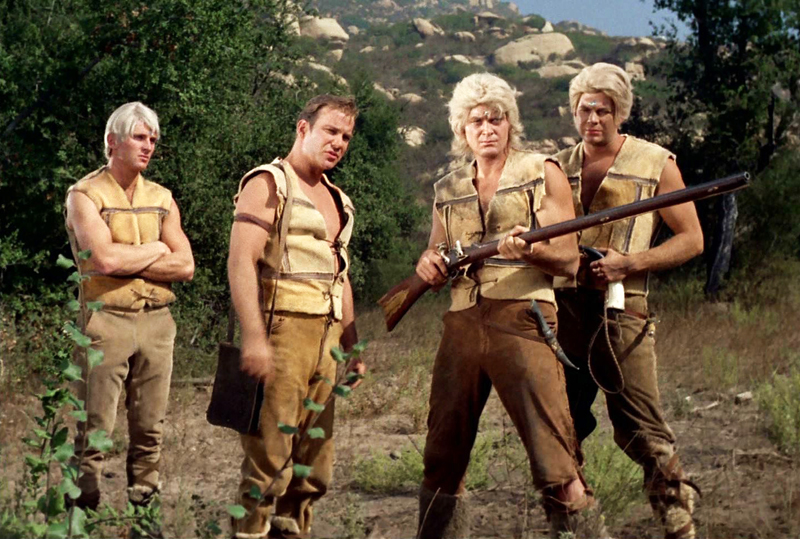
A Private Little War stands out as one of the most thought-provoking episodes of Star Trek: The Original Series. Airing during season 2, this gripping story explores complex themes of conflict, loyalty, and morality on an alien world. The episode introduces memorable characters such as Tyree and his wife Nona, played by guest star Nancy Kovack, whose roles add emotional depth to the narrative. Fans have frequently discussed the cast and plot on forums like Reddit, reflecting on its relevance and connections to other episodes, such as By Any Other Name. Delve into the cast, characters, and lasting impact of this classic installment.
“A Private Little War” is an episode from Star Trek: The Original Series that explores the consequences of interference in a primitive society. Captain Kirk, Spock, and McCoy visit the planet Neural, where they discover that the Klingons have been secretly arming one group of villagers with firearms, upsetting the local balance of power. This sparks a tense dilemma for Kirk, who decides to arm the rival village to prevent the Klingons from gaining control, effectively igniting an arms race on the planet. The episode serves as a clear allegory for Cold War conflicts, reflecting the dangers of proxy wars and the moral complexities of intervention.
The story also features Nona, a native woman who manipulates Kirk and steals his phaser, only to be killed by the villagers, highlighting the tragic human cost of the conflict. Despite some criticism about its pacing and character motivations, the episode stands out for its thought-provoking themes about war, power, and ethics. It challenges the ideals of the Prime Directive by showing how even well-intentioned actions can escalate violence and destabilize societies.
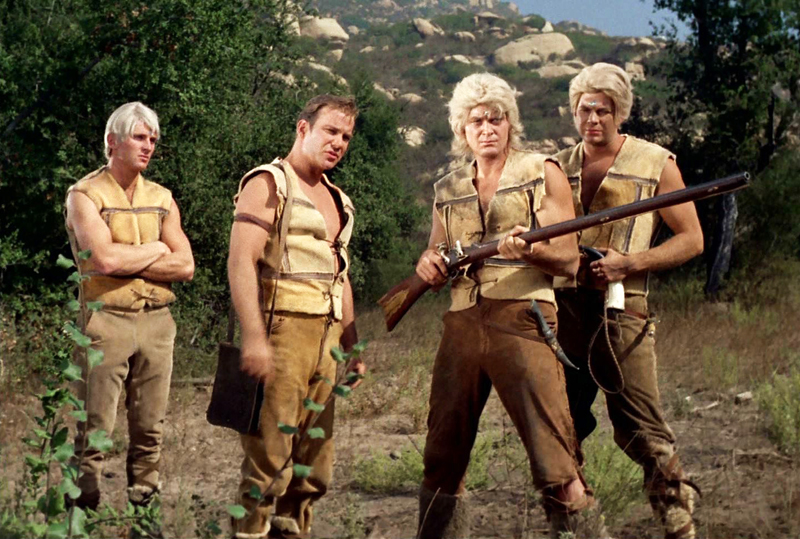
The cast of Star Trek: A Private Little War features many familiar faces from the original series. William Shatner stars as Captain James T. Kirk, leading the mission on the primitive planet Neural. Leonard Nimoy plays the ever-logical Mr. Spock, who faces a serious injury during the episode. DeForest Kelley appears as Dr. Leonard McCoy, providing medical aid and support. Nancy Kovack shines as Nona, an ambitious healer whose actions complicate the Prime Directive. Michael Witney plays Tyree, Kirk’s old friend and leader of the Hill People tribe. The episode also includes James Doohan as Scotty, Nichelle Nichols as Uhura, and Walter Koenig as Chekov, rounding out the Enterprise crew.
Supporting roles add depth to the story, with Ned Romero as the Klingon Krell, Arthur Bernard as Apella, and Booker Bradshaw as Dr. M’Benga. Majel Barrett appears as Nurse Chapel, maintaining her recurring role in the series. The cast brings to life a tense narrative about interference in a developing society, highlighting the ethical dilemmas faced by Kirk and his crew. Directed by Marc Daniels and written by Gene Roddenberry and Don Ingalls, the episode blends action with thoughtful commentary on conflict and morality.
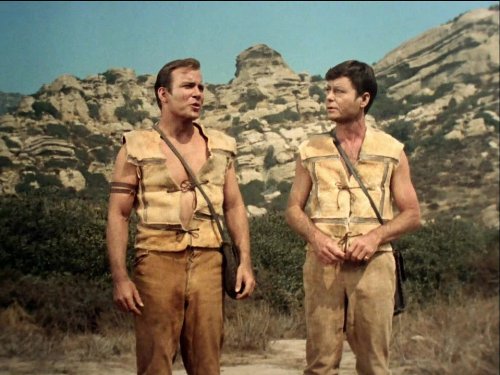
In Star Trek Season 2, Episode 19, titled “A Private Little War,” Captain Kirk returns to a planet he first surveyed years earlier, only to find tensions escalating between two native factions. The Klingons have secretly armed one group, the villagers, upsetting the planet’s delicate balance and sparking an arms race. Kirk faces a tough choice: maintain the Prime Directive of non-interference or arm the opposing hill people to restore balance. Along the way, Kirk is poisoned by a bizarre Mugato creature and saved by Nona, a spiritualist medicine woman whose mysterious ritual binds Kirk to her will. The episode explores themes of conflict, power struggles, and the consequences of intervention, echoing Cold War tensions and the cyclical nature of violence. It also highlights the moral dilemmas Starfleet officers face when their principles clash with harsh realities. Despite some dated special effects and 1960s TV monster designs, the story remains a compelling reflection on how external forces can disrupt peaceful societies and provoke unintended consequences.
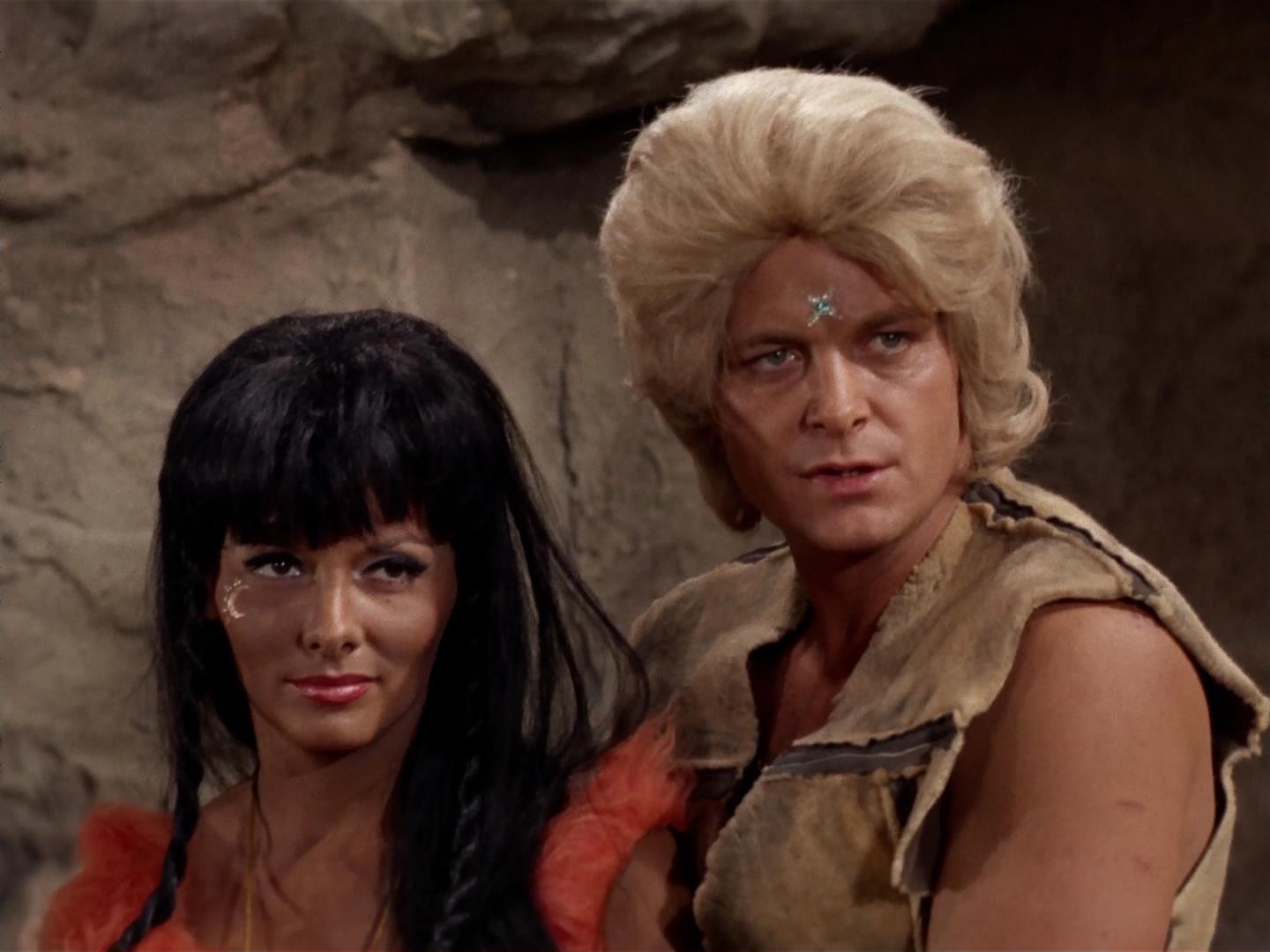
The Star Trek episode “A Private Little War,” from Season 2, Episode 19, originally aired on February 2, 1968. It revisits the planet Neural, which Captain Kirk had surveyed 13 years earlier when it was a peaceful world with primitive bow-and-arrow technology. This time, however, Kirk, Spock, and McCoy discover that the Klingons have been secretly arming one faction of the natives with flintlock rifles, disrupting the balance of power and sparking conflict. The episode explores themes of interference and escalation, reflecting Cold War tensions and the arms race, as the Federation faces the moral dilemma of whether to arm the other side to maintain balance.
The story also highlights Kirk’s personal connection to the planet and its people, especially his friend Tyree, who stands firmly against violence despite the growing warlike situation. The episode mixes action with thoughtful commentary on the consequences of external powers influencing indigenous cultures. It’s a compelling blend of sci-fi adventure and political allegory, showing how even well-intentioned involvement can lead to unintended conflict. The tension peaks when Spock is injured during a skirmish, adding urgency to the mission and emphasizing the stakes involved.
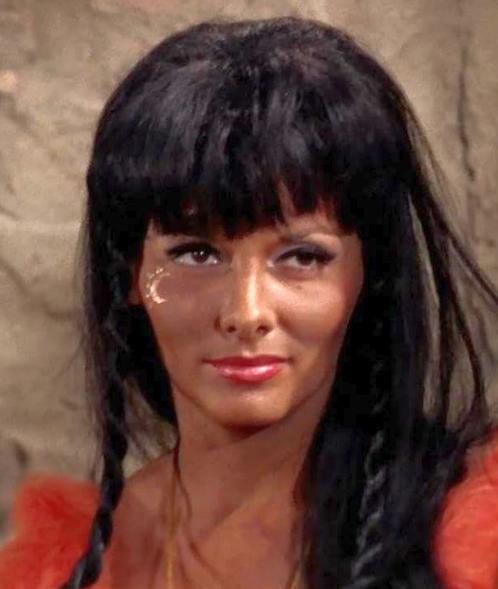
Star Trek Season 2, Episode 19, titled “A Private Little War,” features a strong cast led by William Shatner as Captain James T. Kirk, Leonard Nimoy as Mr. Spock, and DeForest Kelley as Dr. Leonard McCoy. This episode also stars Nancy Kovack as Nona and Michael Witney as Tyree, with James Doohan playing Montgomery Scott ‘Scotty’ and Nichelle Nichols as Uhura. The episode includes notable supporting roles by Ned Romero (Krell), Majel Barrett (Christine Chapel), and Walter Koenig (Pavel Chekov), among others. The story revolves around the Enterprise crew’s involvement in a conflict on a primitive planet, highlighting themes of intervention and the consequences of arming factions.
The episode was directed by Marc Daniels and written by Gene Roddenberry and Don Ingalls, underscoring its importance in the Star Trek canon. Several uncredited actors also contributed to the atmosphere, portraying villagers and patrol members, enriching the world-building. This blend of main and supporting cast brings depth to the episode, making it a memorable part of Star Trek’s classic series. Fans appreciate the dynamic between the core crew and guest stars, which adds layers to the narrative and character development.
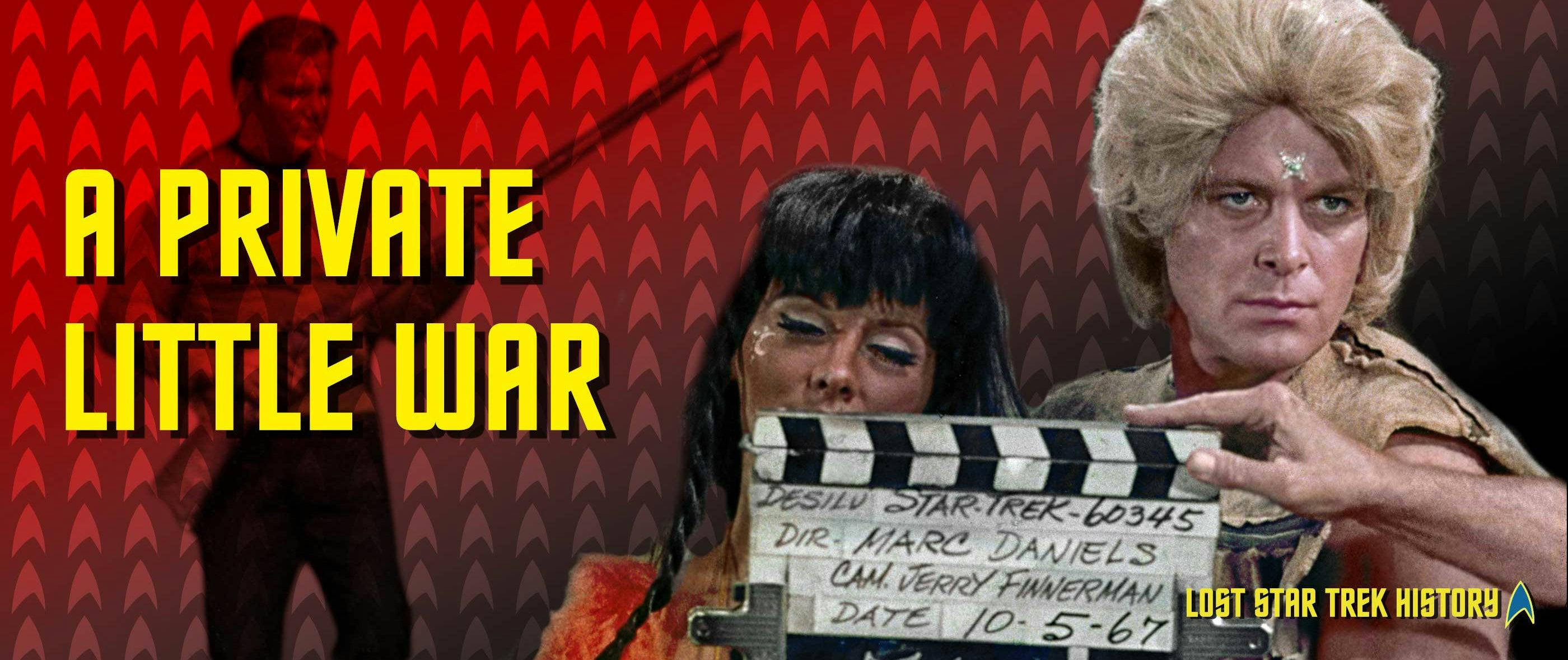
If you’re diving into the Star Trek episode “A Private Little War,” Reddit discussions often highlight its complex take on conflict and morality. The episode centers on Captain Kirk and the Enterprise crew visiting the planet Neural, where they discover the Klingons are arming one local tribe, upsetting a delicate balance and sparking an arms race. Kirk faces a tough choice: to intervene or not, which echoes real-world Cold War and Vietnam War dilemmas about proxy conflicts and the consequences of interference.
Fans on Reddit appreciate how the episode explores the murky ethics of power and intervention, showing that sometimes there are no clear right answers. The story’s tension is heightened by memorable characters like Tyree, Kirk’s old friend, and Nona, whose seductive and dangerous presence adds drama. The episode also cleverly critiques the idea of “civilizing” or controlling other cultures, with the Prime Directive’s non-interference principle being challenged.
While some viewers find the plot a bit contrived, many agree it remains a thought-provoking and relevant Star Trek story that balances action with a serious message about war and peace.
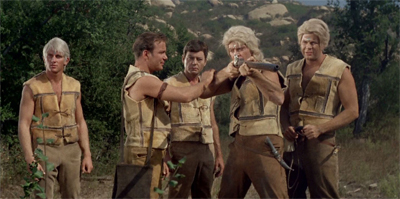
Tyree’s wife, Nona, appears in the original Star Trek episode “A Private Little War” (1968) as a native medicine woman with a strong and memorable presence. She is portrayed by actress Nancy Kovack, who brought a mix of allure and determination to the role. Nona heals Captain Kirk and expects gratitude in return, wanting “knowledge of the stars,” which highlights her intelligence and ambition. Unlike her husband Tyree, who transforms from an innocent youth into a hardened leader, Nona is street-smart and fiercely protective of her people. Her frustration with Kirk’s adherence to the Prime Directive—choosing rules over her husband’s survival—adds depth to her character and creates real dramatic tension in the story. The episode explores themes of loyalty, change, and the harsh realities of leadership, with Nona’s tragic misjudgments leading to intense consequences. Nancy Kovack later reflected on her role with surprise at the lasting fan interest, despite not initially knowing much about Star Trek when she filmed the episode.
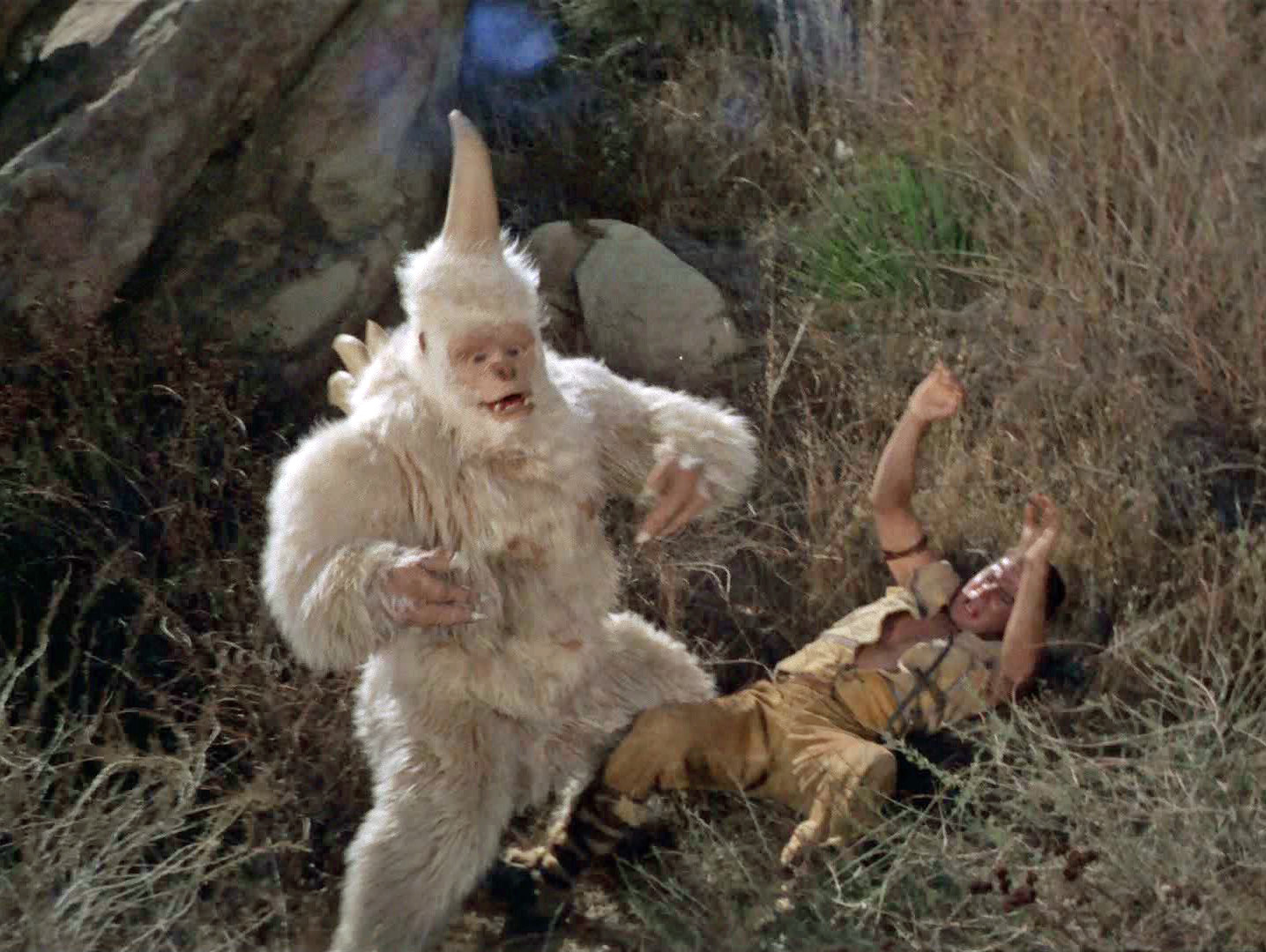
Nona is a memorable character from the original Star Trek series, appearing in the episode “A Private Little War” (1968). Played by Nancy Kovack, Nona is a native medicine woman with the unique ability to cure the poisonous sting of the Mugato, a gorilla-like creature. Interestingly, Kovack didn’t fully understand Nona’s role during filming; she later learned that Nona was actually an alien trying to protect her people by misleading Captain Kirk and his crew. This made Nona a complex figure—part hero, part unwitting antagonist—caught in the episode’s broader theme about the dangers of escalating armaments and conflict.
Nancy Kovack enjoyed playing Nona because the character allowed her to speak loudly and with strong, almost comic-like lines, which was a fun change for her as an actress. Despite the confusion about Nona’s motivations, Kovack embraced the role’s intensity and theatricality. After her Star Trek appearance, Kovack continued a successful TV career before retiring in the mid-1970s. Her portrayal of Nona remains a standout example of the show’s ability to blend sci-fi with moral and political commentary.
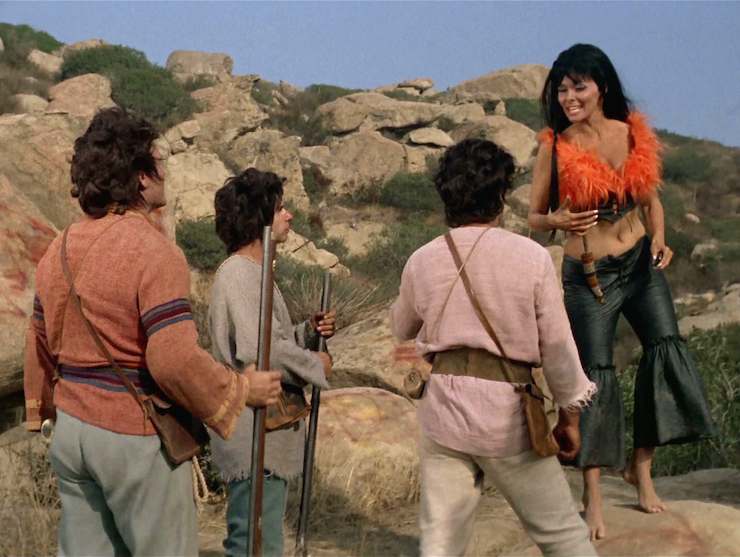
Nancy Kovack is a fascinating actress born in 1935 in Flint, Michigan, known for her intelligence and early achievements. She entered the University of Michigan at just 15 and graduated by 19, boasting an impressive IQ of 152. Before acting, she worked as a model and was one of Jackie Gleason’s “Glee Girls,” which helped launch her career in entertainment.
Her breakthrough came with stage and television roles, eventually leading to Hollywood films. One of her most memorable performances was as Medea, the high priestess, in the 1963 classic Jason and the Argonauts. She also appeared alongside stars like Vincent Price in Diary of a Madman and Elvis Presley in Frankie and Johnny. Kovack’s versatility allowed her to work in various genres, from adventure to comedy, making her a recognizable face in 1960s cinema.
Beyond her acting, she is married to the renowned conductor Zubin Mehta. Nancy Kovack’s journey from a bright young student to a celebrated actress is a testament to her determination and talent, making her a remarkable figure in Hollywood’s golden era.
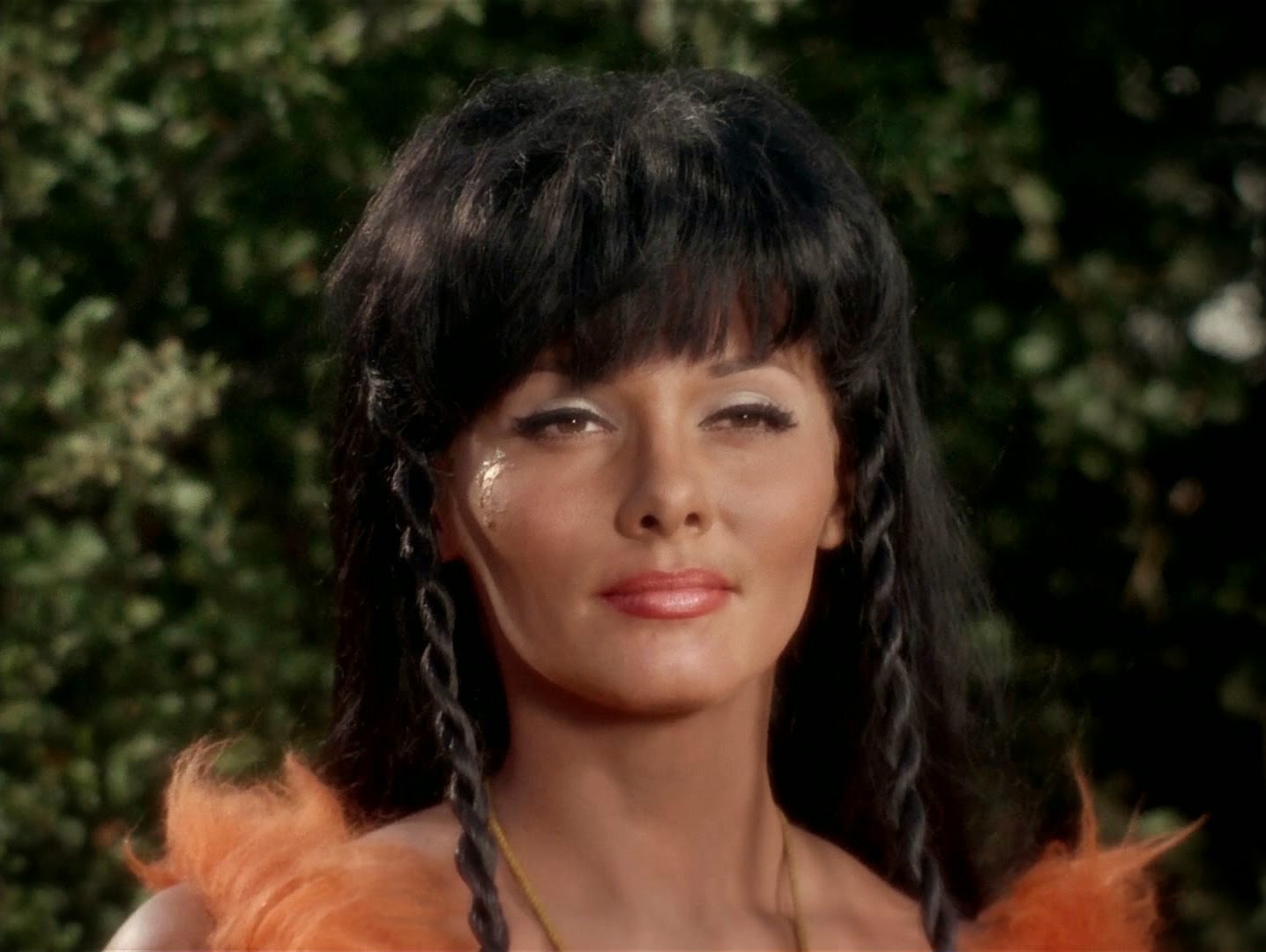
By Any Other Name is a compelling novel that intertwines two stories across time, focusing on women playwrights who struggle to have their voices heard. One story follows Emilia, a young woman in Elizabethan England who loves stories and secretly writes plays but must hide her authorship behind Shakespeare’s name because women were not allowed in theater. The other follows Melina, a modern playwright who faces similar challenges and even pretends to be a man to get her play produced. This clever parallel highlights how gender bias in the arts persists across centuries.
The novel explores themes of identity, creativity, and the sacrifices women make to pursue their passions. Melina’s journey is complicated by personal relationships and societal expectations, while Emilia’s life is marked by hardship, resilience, and a determination to leave a legacy despite the barriers she faces. The story is both inspiring and heartbreaking, showing how these women navigate a world that often refuses to recognize their talents openly. Ultimately, By Any Other Name is a powerful reflection on the cost of invisibility and the courage it takes to claim one’s name and story.
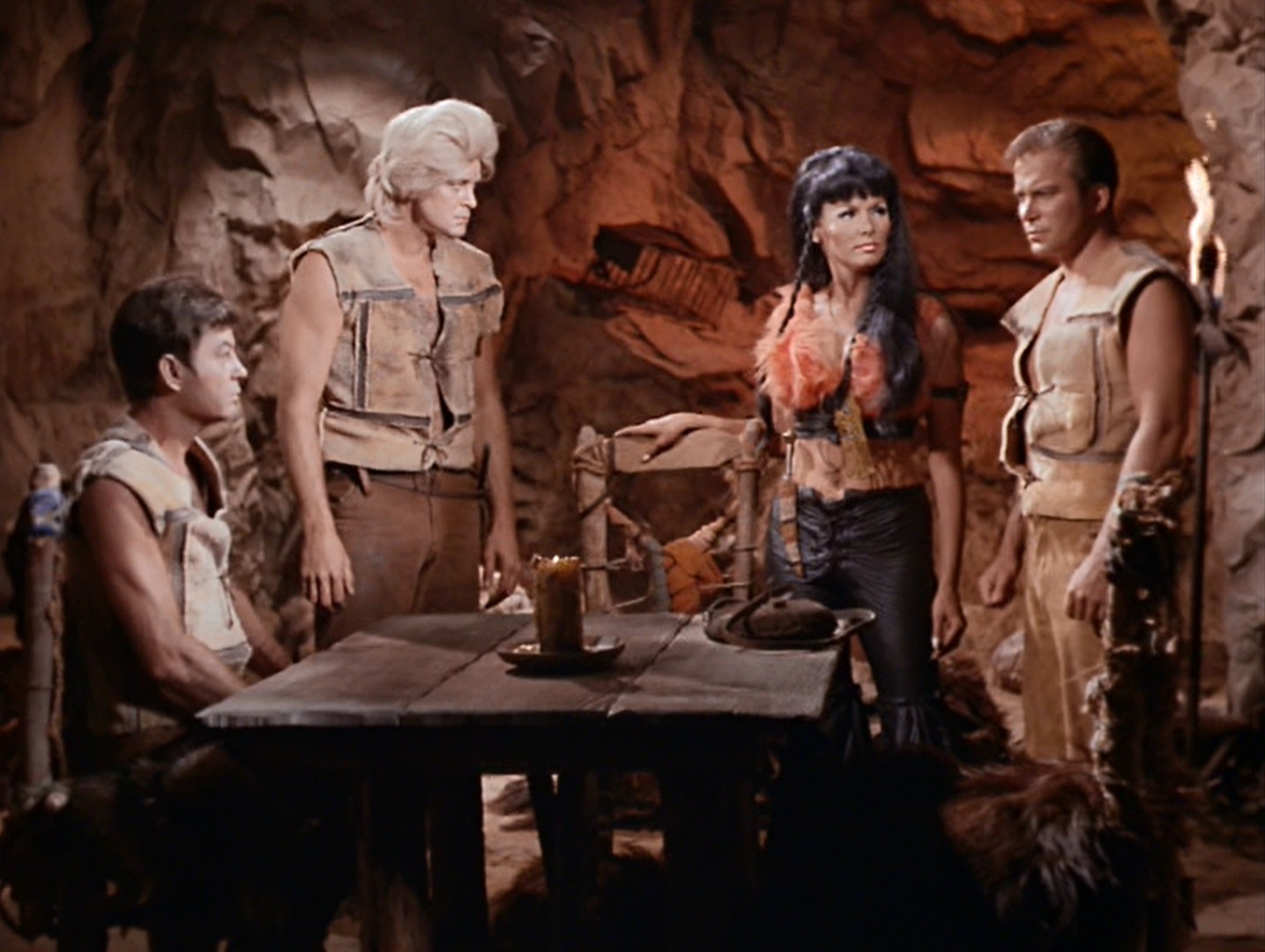
In conclusion, “A Private Little War” serves as a thought-provoking exploration of the complexities of war, morality, and the impact of technology on societies. Through Captain Kirk’s moral dilemma and the stark contrasts between the Federations’ principles and the realities of intervention, the episode challenges viewers to reflect on the ethical implications of involvement in foreign conflicts. It poignantly highlights the consequences of escalating violence and the unintended ramifications of imposing one’s values on another culture. Ultimately, the episode stands as a resonant reminder of the delicate balance between protection and interference in the quest for peace.